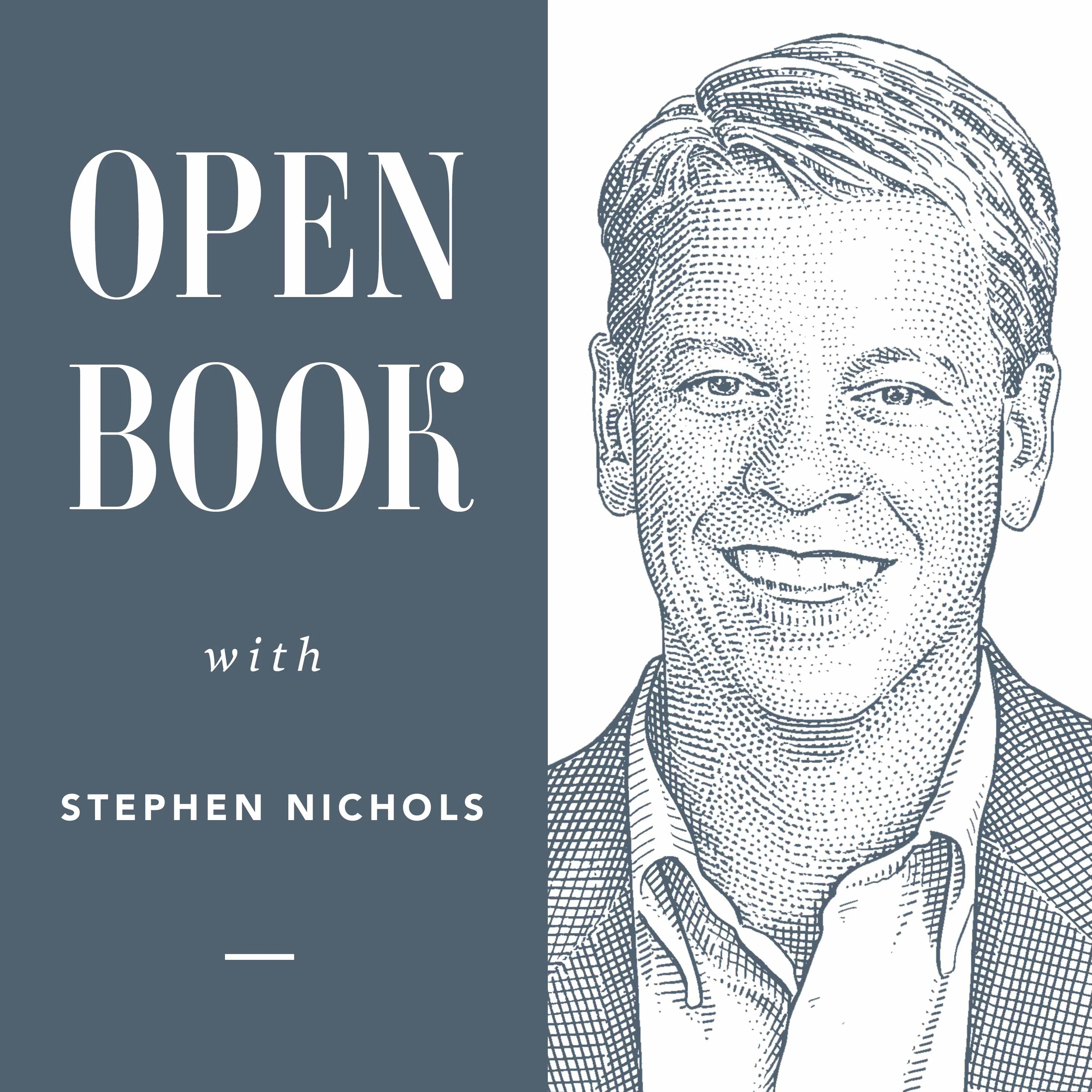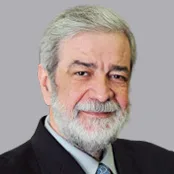Augustus Nicodemus Lopes on Ridderbos’ Paul: An Outline of His Theology

Do you know the difference between biblical theology and systematic theology? Today, Stephen Nichols and Augustus Nicodemus Lopes discuss the value of both these disciplines in the study of God’s Word.
Dr. Stephen Nichols: Well, last week as we were finishing up our time on Open Book, somehow we ended up talking about the Dutch, and here we are at week eight together, and we actually have a Dutch author, Herman Ridderbos. And this is his book, Paul: An Outline of His Theology. It’s pretty hard to be a New Testament Reformed scholar and not bump into this book. So, tell us about how you came into contact with this book and its influence on you.
Dr. Augustus Nicodemus Lopes: Yes, I came across that book when I was studying under a Dutch professor for my master’s degree in South Africa. His name was Lambert Flor, and he was a very fine scholar. He was a Dutchman. He was serving at the seminary in South Africa at the time, the seminary in Potchefstroom, which is the name of city, about a hundred kilometers from Johannesburg. He was serving as New Testament professor and the head of the department of exegetical studies. This is where I was going to study. And he was my mentor. He was my professor. He would take time to be with me. And then he presented me Herman Ridderbos, and he said, “If you’re going to study New Testament, you have to know, Ridderbos’ book on Paul that is going to open your mind.”
And Professor Flor also taught me the importance of biblical theology. You know, at that time, I didn’t know there is a slight difference between systematic theology and biblical theology. And actually, I had to make a choice which way I should go, and I decided for biblical theology. And in biblical theology, Herman Ridderbos’ book on Paul is something you cannot miss; you have to know.
And then biblical theology was invented by the liberals, so to say, the liberals as a reaction to the dryness of the systematic Reformed theology. But then people like Ridderbos, Geerhardus Vos, and others in the biblical area just picked up biblical theology, converted, baptized it into a tool that Reformed theologians could use, biblical theologians could use. And Ridderbos does that in a way that nobody else—Geerhardus Vos comes first, I mean, in the area of biblical theology, he is well known by his book on both Testaments. But I think Ridderbos’ book on Paul is unsurpassed. I mean, he’s still the best one.
He shows how he keeps his commitment to the biblical idea of inspiration of inerrancy, and at the same time, he is able to dialogue and to talk to liberals, neo-orthodox people, and show how they are wrong and how the Reformed faith better answers to the questions about Paul: Where did Paul’s thought come from? What’s the core, what’s the meat of Paul’s thinking? And how does Paul arrange his preaching in his letters and everything? That was the most influential book in the time I was studying for my master’s degree. It shaped the way I think about biblical theology. It was Ridderbos.
Nichols: You know, the things that you were just saying there are very helpful to sort of take a step back in the overview of just what was going on in the twentieth century in the academy. And you go to Germany and you go to the Netherlands, and biblical theology really was presented almost as a weapon against the systematizers.
Lopes: That’s right.
Nichols: And even that sort of, sometimes you’ll hear about a “Hellenized” Christianity, where the second-century or third-century Christians sort of moved away from the words of Jesus or the teachings of some of the New Testament and sort of systematized everything, as if to systematize is bad and we need to have it in its pure form. And you had people like Vos and Ridderbos, with their high view of Scripture, who recognized that these aren’t enemies—biblical theology and systematics—it’s really that work of exegesis of the biblical theologians and biblical scholars that help the systematicians just organize all that material into systematic expression. But in some places in the academy, they really were pitted against each other.
Lopes: They were.
Nichols: You know, like we think of Machen’s book, The Origin of Paul’s Religion.
Lopes: Oh yeah, it’s a wonderful book, too.
Nichols: It’s as if Jesus was one thing and Paul is the great systematizer, and Machen shows there’s total compatibility there. But anyway, I just was thinking as you were walking us through that, how helpful that is to just sort of understand some of these movements in the academy and how grateful we can be to some of these scholars like Ritterbos and Vos and Machen and the Princetonians who helped us, and we’re very well served for it today from where we sit.
Lopes: That’s true. I don’t know—you can help me—I’m not sure here. But we both had a professor at Westminster, Dr. Richard Gaffin. I think that he started as a systematic theologian and then he moved on to biblical, or it was the other way around. But in the end, he showed—I think Dr. Gaffin is a vivid example of how these two disciplines, they are together. He could relate to both, being both. He was both a systematizer and a biblical theologian.
Nichols: And I think especially for us, when we think about, What does being Reformed mean?—and really at the center of it is the doctrine of God. And so, we’re talking about: it’s a holy Bible because it’s a holy God. And if we’re New Testament scholars, or church historians, or systematic theologians, or pastors, we all start with the fact that this is God’s Word to us, and now we do all of our work coming out of that. All of our work’s going to be complimentary and collaborative and hopefully, in the end, serve the church. It’s the goal of all this. So, I just very much appreciate that, and to just your story of pursuing that biblical theology path as the way to your pastoral ministry.
Lopes: Yeah, I think that one of the greatest contributions of deciding to be a biblical historian—I mean theologian, sorry—is that it helped me on expository preaching. There is such a sweet and close connection. I think that my ministry of preaching in an expositive way in Brazil is mostly because of that choice that I made in the master’s degree that I would be a biblical scholar. So, as I approach the text, I’m thinking like a biblical theologian, and from that, I arrange my preaching in an expository way. I see those two things connected. I’m not saying that a systematic theologian will not be expository, but he will be more tempted to arrange his preaching around topics or follow that way of systematic theology.
So, I think being a biblical scholar in that way helped me in my pastoral ministry, especially in the area of preaching. As I preach—for instance, I’m preaching on Exodus, I finished a series on Genesis, I’m preaching series in Acts right now in my church—and all become books because it’s already there. All the research, the results, the application, it’s all there. And it has been so helpful to me. I’m very glad that I made that decision.
I’m not making little of systematic theology. In the end, I have to use it to arrange my material and to put into limits my research.
Nichols: Yes.
Lopes: As I interpret the book, I remember the confession of faith, the limits given by systematic Reformed theology, and I know there are limits to what I can interpret and what I can preach. So, systematic theology helps me, keeps me straight. I mean, on the right line.
Nichols: They’re great guardrails for us because we are prone to theologically wander sometimes.
Lopes: Yes.
Nichols: You know, we have this wonderful analogy in Scripture of the body of Christ and all of us with our gifts coming together, and so it is in biblical scholarship. We’ve got the biblical scholars, we’ve got the theologians—we even have church historians.
Lopes: That’s true.
Nichols: And all of our work comes together to help the people of God.
Well, I’ve really enjoyed this discussion with you, not only about Paul, but just about biblical theology, as we’ve had this time together for this episode of Open Book, and I look forward to next week with you as well. Thank you.
Lopes: Thank you.
I’m Steve Nichols and that was another Open Book. Open Book is a podcast about the power of books and the people they’ve shaped. If you’ve enjoyed this episode, please leave a rating or review wherever you’re listening. It’s the best way to help others discover us, and it’s a great encouragement to me. I’ll see you next week for another episode of Open Book.
Recent Episodes
Augustus Nicodemus Lopes on Renewing Your Mind
June 27, 2024|Theologians
Augustus Nicodemus Lopes on Pearcey and Thaxton’s The Soul of Science
June 20, 2024|Apologetics
Augustus Nicodemus Lopes on Lloyd-Jones’ Preachers and Preaching
June 6, 2024|Christian Classics
Augustus Nicodemus Lopes on Spurgeon’s Lectures to My Students
May 30, 2024|Christian Classics
Augustus Nicodemus Lopes on Packer’s Evangelism and the Sovereignty of God
May 23, 2024|Christian Classics

